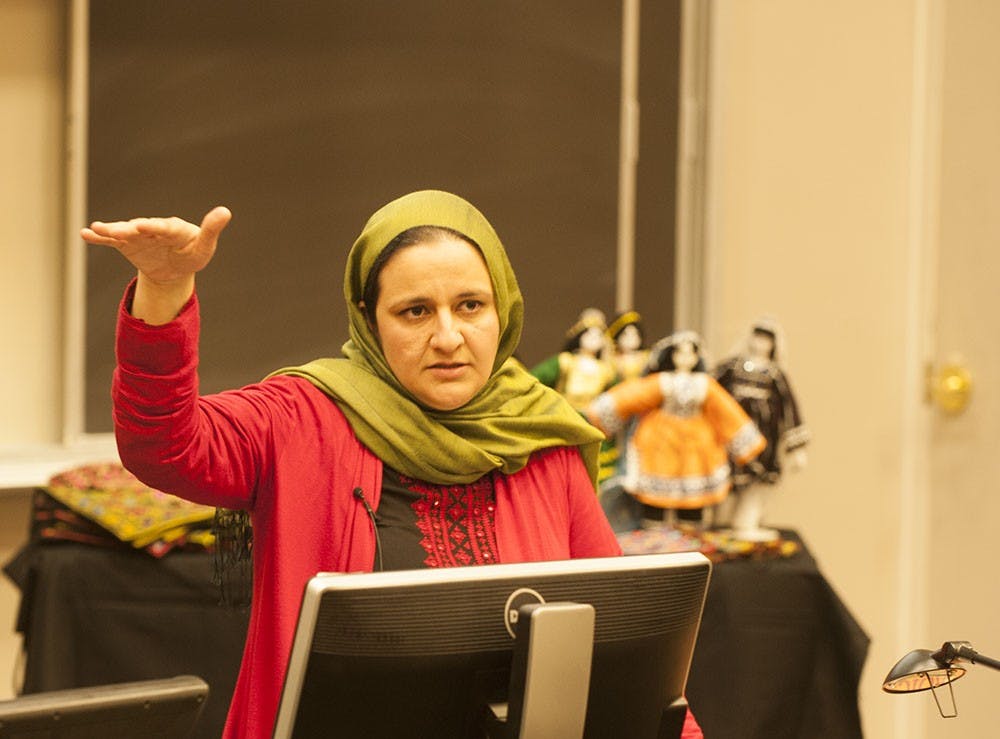After a period of inactivity, second-year College student Marwa Hamidi has led the Afghan Student Association to its University comeback this year. The association hosted its first speaker Thursday night, drawing a wide spectrum of students on Grounds.
Hamidi became president of the association in the fall, and said she dealt with the difficulties inherent to restarting a group after prolonged absence.
“It was kind of hard in the first semester just because I had never been president of an organization and there was really no one else helping me,” Hamidi said. “It was just me.”
As part of Hamidi’s initial efforts, ASA got involved in the International Dessert Festival and the Multicultural Festival. Thursday night represented a shift, however, as the association hosted its own guest speaker.
Rangina Hamidi, who is Hamidi’s cousin and a University alumni, returned to Grounds to speak about women’s issues in Afghanistan. Hamidi graduated in 2000 with a women and gender studies degree and is now the creative director of Kandahar Treasure, a non-profit project of Afghans for Civil Society.
Rangina Hamidi has spent much of her time since graduating from the University traveling back and forth between the United States and Afghanistan working as a women’s rights advocate. Kandahar Treasure employs more than 400 Afghan women in a traditional embroidery art called “khamak.”
“Because it is women’s work, we don’t really have any written record of history of this tradition, but we know that this art form has existed in this region and in this province for at least a couple of centuries,” Hamidi said. “[The art] is only done by women and is passed on from generation to generation of women.”
Marwa Hamidi said her family’s involvement with activism in Afghanistan is what initially sparked her interest in getting ASA off the ground. She said she also desired to bring members of the Afghan community together — both at the University and in the greater Charlottesville area.
“[My cousin] goes back and forth to Afghanistan all the time,” Hamidi said. “She’s really involved and I just wanted her to come and be able to give that perspective to the U.Va. community because I feel like not many people know about women’s rights. It’s just kind of what’s revealed to us through the media, which is not always the most accurate information.”
Rangina, who has been nominated for a CNN Hero Award for her work in Afghanistan, aims to create a network of Afghan women.
“Our office facilities allow [women] to meet and share experiences and learn from each other, talk about problems with each other [and] share that knowledge and [create] this sub-network of women workers,” she said. “A strategy that we’re using is not to force anything from the outside, but to have the opportunity for people within the community to spring their own change with themselves. We believe that when change comes from within, the lasting effects are much stronger rooted and long lasting than ones that are introduced from the outside.”
After seeing how her cousin’s talk helped bring the local community together, Marwa said she hopes to continue planning events to better connect the community through ASA.
“The goal is to get people interested and to bring out the Afghans in the community that I don’t know,” she said. “We want them to know that we will be doing things in the future.”







